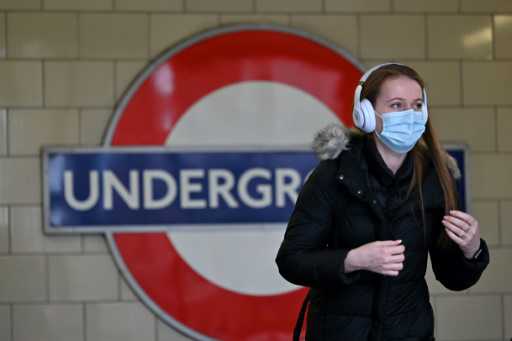Paris under curfew as Europe battles soaring virus caseload
18 October, 2020

Millions of Europeans on Saturday faced tough new coronavirus restrictions as governments try to combat spiraling infections.
Paris and other French cities are under a nighttime curfew that will last for at least a month, while England is banning mixed household gatherings in the administrative center and other areas and Italy's most populous region is limiting bar openings and suspending sports events.
Cases of the condition which includes upended life around the world and wreaked social and economical havoc have been soaring beyond levels observed in the first wave earlier this season when many countries sought to stem the tide with lockdowns of varying degree.
In the face of the surge, governments have already been forced to embark on ever tighter measures to regulate the pandemic's spread, while trying in order to avoid full-on lockdowns.
COVID-19 has claimed the lives of 1 1.1 million over the planet because it first emerged in China in December, with America suffering the most deaths of any country at a lot more than 218,000.
About 20 million persons in Paris and several other French cities were facing the beginning of a 9 p.m.-6 a.m. curfew following the country on Thursday saw a new high of 30,000 cases in 24 hours in one of Europe's major hotspots.
The move -- that will last at least a month -- has broad public support, but officials are fretting over the heavy social and monetary costs.
"It's terrible. It feels to me like being back March," said Hocine Saal, head of the emergency service at a healthcare facility in the Paris suburb of Montreuil, adding that rising numbers of non-coronavirus patients made coping "very hard".
In Britain, which has Europe's highest death toll at a lot more than 43,000, restrictions are being ramped up with bans on indoor meetings between members of different households in London and several other English cities.
Those zones are in the next of a three-tier alert system introduced by the government of Prime Minister Boris Johnson although some areas -- notably in the northwest -- have been placed on the best level.
About 28 million persons -- half of the population of England -- are actually subject to tight social restrictions.
But some cities have observed angry protests at what some persons see as a go back to virtual lockdown.
Johnson has acknowledged that local restriction policies made to spare battered economies a fresh full-scale lockdown cannot be "pain-free".
As Britain battled for a coherent strategy, German Chancellor Angela Merkel urged citizens to remain at home whenever possible after 7,830 cases emerged over a day.
"Say no to the trip which isn't really necessary, to a celebration that isn't really necessary. Please stay in the home whenever you can," Merkel said in her weekly podcast address.
"What will determine winter and our Christmas will be decided in the weeks ahead" by how persons react now, she said.
On Friday, a Berlin court overturned an order for restaurants and bars to close early, the most recent in a slew of legal rulings upending measures taken by Germany's national and local governments to fight coronavirus transmission.
In Italy, the wealthy northern region of Lombardy has ordered all bars to shut at midnight as the region where Europe's first virus cases emerged in February battles another wave.
Elsewhere in Europe, Poland, the Czech Republic, and Belgium all announced daily record caseloads after the World Health Organization dubbed a 44 percent rise in European cases in a week "very concerning".
Belgian authorities said Saturday that they had reached 200,000 cases significantly less than per month after surpassing 100,000.
Source: japantoday.com
TAG(s):
